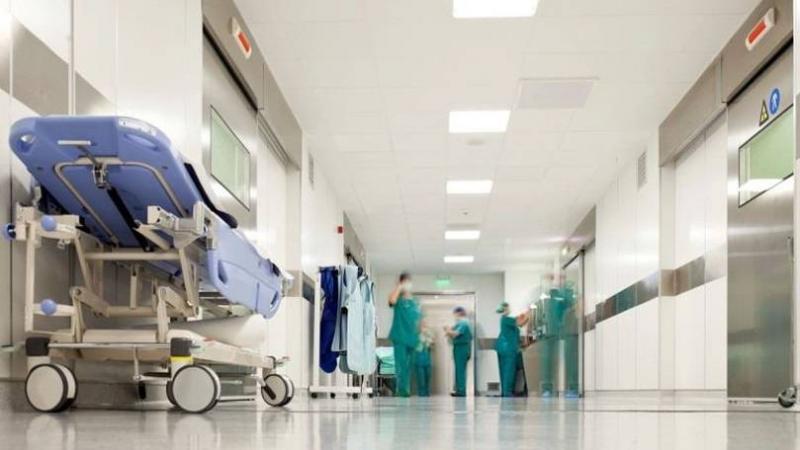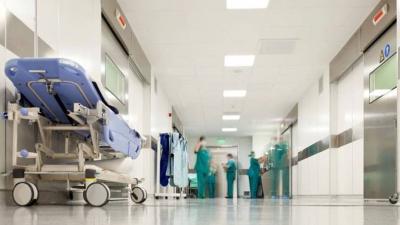Starting September 15, the National Social Security Fund will raise the rates that are still calculated based on the official exchange rate by two and a half to three times for external examinations and hospitalization costs. Two days ago, the board of directors of the fund made a decision aimed at rectifying the issue of increasing rates that are still calculated based on the official rate, issuing applicable memos between September 12 and 15 for the new rates, so that citizens feel the difference starting from that date.
The director-general of the National Social Security Fund, Dr. Mohammed Karky, explained to "Nidaa Al-Watan" that "the examination fee for a specialist doctor outside the hospital was 50,000 LBP, of which the fund reimbursed 40,000 LBP. Today, the rate has risen to 125,000 LBP, with the beneficiary recovering 80%, or 100,000 LBP (an increase of 60,000 LBP from the previous rate for external examinations). The same applies to radiological and laboratory tests, which have also been adjusted by two and a half times.
For their part, hospital owners consider the new increase in insurance rates symbolic compared to the increase in hospitalization costs, which have risen twelvefold. Karky responded, saying, "This increase is just the beginning. Our ambitions are greater, but we do not have revenues to fund further increases. Furthermore, the hospitalization costs that hospitals talk about are inflated."
He pointed out that "the increase in insurance rates comes after securing funding from raising the minimum wage to 1,325,000 LBP and enhancing the maternity and illness cap from 2.5 million to 5 million LBP. All these additional revenues, amounting to around 800 billion LBP, were distributed to increase the rates, enabling us to achieve a raise in insurance rates to two and a half times for external examinations and medicines outside the hospital. For hospitalization, we have implemented two measures: for surgical amounts, rates have increased threefold similar to the Ministry of Health's rates for procedures like appendectomies and gallbladder surgeries. For admissions to the hospital without surgical procedures, the rate will also be multiplied by two and a half."
He affirmed that "there will be monitoring by the fund regarding the differences charged by hospitals, as we will not accept them being excessive, such as for childbirth, where hospitals charge differences of 10 or 12 million LBP instead of 3 to 4 million LBP." He added: "One hospital receives a difference of 7,000 dollars for an appendectomy; this figure is astronomical given that such surgeries do not require significant medical supplies."
Karky reminded that "the decree to increase wages by 600,000 LBP, which has been signed but not yet published in the official gazette, will generate about 400 billion LBP for the insurance fund that will be used for a new round of rate increases later. As for the dialysis session covered by the fund at 100%, the Ministry of Health has increased the rate, and we will raise it from 1 million to 1,200,000 LBP; however, this depends on revenue availability."
He emphasized that "this is the maximum that can be done, noting that these measures will not solve the problem but are a positive step in the right direction, which should be followed by steps like stabilizing the exchange rate."
But how will beneficiaries know once the applicable memos are issued between September 10 and 15 that the differences are inflated? Karky responded: "The fund has 50 supervising doctors and 50 administrative monitors on hospitals. Any insured citizen who feels that the differences are exaggerated can file a complaint, and we will take action accordingly; we may issue warnings, terminate contracts, or stop financial advances as the fund's management has done previously with prominent hospitals."
The financial director of the Mount Lebanon Hospital, Rola Zahr, commented to "Nidaa Al-Watan" on the increase of the insurance rates by two and a half times, stressing that it is "insufficient in light of the increase in hospitalization costs by between 12 and 15 times." She explained that "the insurance rate for a patient's stay in the hospital for one night, including accommodation and care, was 90,000 LBP, equivalent to 60 US dollars, before the onset of the currency collapse; today, that rate has dropped to 3 dollars based on the black market exchange rate, meaning it has become nearly non-existent." Regarding the number of insured patients in the hospital, she said it has declined by between 30 and 40%.




